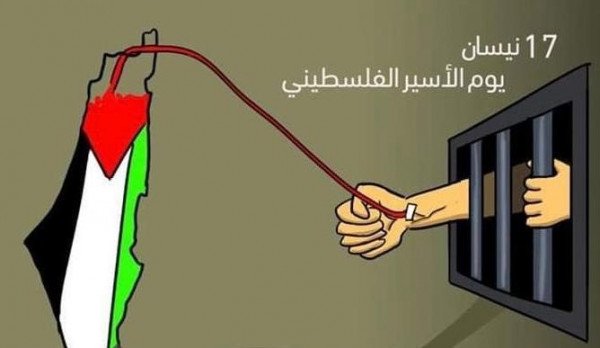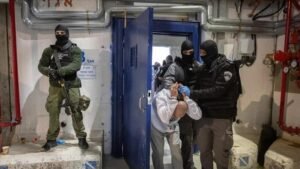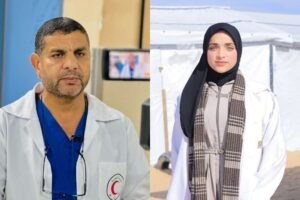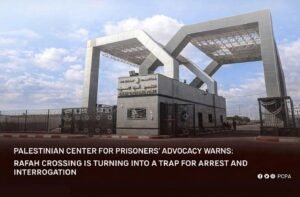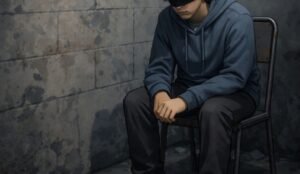Prepared by: Abdel Nasser Awni Farwana
Every human being—regardless of time or place, nationality, gender, sect, ethnicity, language, or skin color—has the right to enjoy freedom. It is a natural right, born with them and accompanying them until death. When an occupying power tries to strip this right away by force, international law—as does human nature—grants the individual the right to defend their land and freedom.
This is exactly what happened with the Palestinian people when their land was occupied by the Israelis and their freedom was stolen. It became necessary to defend their rights and resist the occupation with the power of justice and the tools of resistance. Thus began the ongoing Palestinian struggle.
Resisting occupation is a source of pride for nations and a badge of honor for peoples. No dignified people have ever lived under occupation without resisting it, and no people have resisted without eventually achieving freedom. The Palestinian people understood this truth from the early days of the Israeli occupation. Over 68 continuous years, they have made unimaginable sacrifices in terms of martyrs and prisoners.
While the martyrs have departed and been buried, the prisoners remain hidden behind bars, subjected to the harshest forms of torture and deprivation by those who stole their land and liberty.
In the collective Palestinian consciousness, these prisoners are not simply absent citizens, locked away. They are heroes who have struggled and sacrificed, spending the best years of their youth behind prison bars for the sake of Palestine and its holy sites. They are icons of freedom, awaited by their people. Until their return, the Palestinian people believe they have every right to demand humane treatment for these freedom fighters, in accordance with international laws and conventions.
The issue of prisoners is a fundamental part of the Palestinian national liberation struggle. It is one of the firmest pillars of the Palestinian cause and holds deep, central significance in the heart of every Palestinian, regardless of political affiliation or ideology.
Since the beginning of the occupation, Israel has opened its prisons and detention centers, incarcerating close to one million Palestinians from all segments of society: men and women, children and adults, the young and the elderly.
There is hardly a Palestinian home that has not tasted the bitterness of arrest, or a Palestinian who has not experienced, directly or indirectly, the suffering of imprisonment—either in their own body or in that of a family member, relative, neighbor, or friend.
These arrests have become a daily, systematic practice and a tool of Israeli retaliation and psychological warfare aimed at instilling fear and altering behavior among Palestinians. They are a core component of the occupation’s methodology to control the Palestinian people, extinguish their uprising, and suppress their resistance. Arrests have become one of the most repressive, destructive means of breaking Palestinian society.
More dangerously, arrests are closely tied with torture. It can be said that every Palestinian detainee has been subjected to at least one form of physical or psychological torture. Israeli prisons have come to represent one of the worst faces of occupation throughout history, as their goals and consequences have no defined limits—affecting body and soul, individual and community, and hindering both human and societal development.
Thus, if liberating prisoners is a vital necessity for reinforcing the culture of resilience and resistance, raising awareness about the dangers of imprisonment is an urgent and essential duty to protect that resistance. Working to confront and end these arrests has become an objective necessity to safeguard Palestinian society from collapse.
Prison has imposed an unbearable life on Palestinian detainees; its torment does not end with release, as its psychological and physical effects linger long after liberation, causing chronic diseases of both body and mind.
Despite all this, the experiences of resilience, hunger strikes—both collective and individual—and other forms of protest continue to stand as powerful examples in Palestinian collective memory. The Israeli jailer, through his perverse conduct, has failed to extract Palestine from the prisoners’ hearts, just as he has failed to erase Jerusalem and Al-Aqsa from their minds. Prisons have instead become centers of education and awareness, crucial sources of revolutionary strength and resistance. Many freed prisoners have gone on to play essential roles in building national institutions and civil society organizations.
In recognition of their sacrifices and just cause, the Palestinian National Council—the highest authority of the Palestine Liberation Organization—declared April 17th of every year as Palestinian Prisoners’ Day during its regular session in 1974. The day is marked to highlight prisoners’ suffering, elevate their status, and work toward their release. Since then, Palestinians in both homeland and diaspora have commemorated this day in various forms, joined by numerous institutions and organizations at the Arab, Islamic, and international levels.
Statistics and Figures
This year’s commemoration of Palestinian Prisoners’ Day comes amid a sharp increase in arrests, a rise in their numbers and spread, and unprecedented levels of violations and crimes against prisoners—particularly since the outbreak of the “Jerusalem Intifada” on October 1, 2015.
Currently, around 7,000 Palestinian prisoners remain in Israeli jails, including more than 400 children, the youngest being 12-year-old Dima Al-Wawi, and 70 Palestinian women, the longest-serving being Lina Al-Jarbouni from the 1948-occupied territories, imprisoned for 14 years.
There are 700 administrative detainees held without charge or trial, 6 members of the Palestinian Legislative Council, 1 former minister, 17 journalists, and hundreds of academics, professionals, and athletes.
One of the most painful issues is the presence of about 1,700 prisoners suffering from various illnesses, including 180 with serious conditions, 25 cancer patients, and 70 with physical, psychological, or sensory disabilities, some of whom have lost the ability to walk. The continued policy of deliberate medical neglect worsens their suffering and poses a threat to their lives.
More than 500 prisoners are serving life sentences—some multiple times. Many have aged and grown gray in prison. 40 prisoners have been detained for over 20 continuous years, 17 for more than 25 years, and 7 for over 30 years. The longest-held is Karim Younis, from the 1948-occupied territories, who has been imprisoned for 34 years. Dozens more were re-arrested after being released in the Shalit exchange deal (Wafa al-Ahrar).
It must be noted that while statistics are important, the true meaning lies in the stories and unimaginable suffering behind each number.
Slow Death
This year’s Prisoners’ Day comes while the prisoner movement is experiencing its worst and most dangerous phase. The Israeli authorities have escalated their violations, turning prisons into arenas of repression, abuse, slow death, humiliation, and systematic torture—breeding illness and serving as testing grounds for experiments. The prison administration is also trying to reintroduce the humiliating era of “Yes, Sir”, which prevailed in the early years after the 1967 occupation of the rest of Palestinian lands.
We are dealing with an occupying state that blatantly violates international law in full view of the world. It legalizes its violations with racist laws, backed by all branches of its political system. It acts as if it is above the law, immune from accountability, and promotes a culture of impunity—not only for its security personnel but for all its citizens. This encourages further deviant and racist behavior.
Therefore, we call for a coordinated political, legal, human rights, and humanitarian effort to pressure the International Criminal Court (ICC) to launch an investigation into the numerous crimes committed against Palestinian prisoners in Israeli jails.
While working to pressure Israel into releasing prisoners through exchange deals, political efforts must not be neglected. Simultaneously, we must not abandon our Arab and Islamic depth, nor our engagement with international organizations, friendly countries, and global advocates for justice.
In conclusion, despite the magnitude of these arrests and the horrors they entail, they have not and will not stop a people determined to continue resisting until they regain their land and freedom. Arrests cannot lead to peace—for peace cannot exist without freedom. No honorable Palestinian can live peacefully unless they are free.

